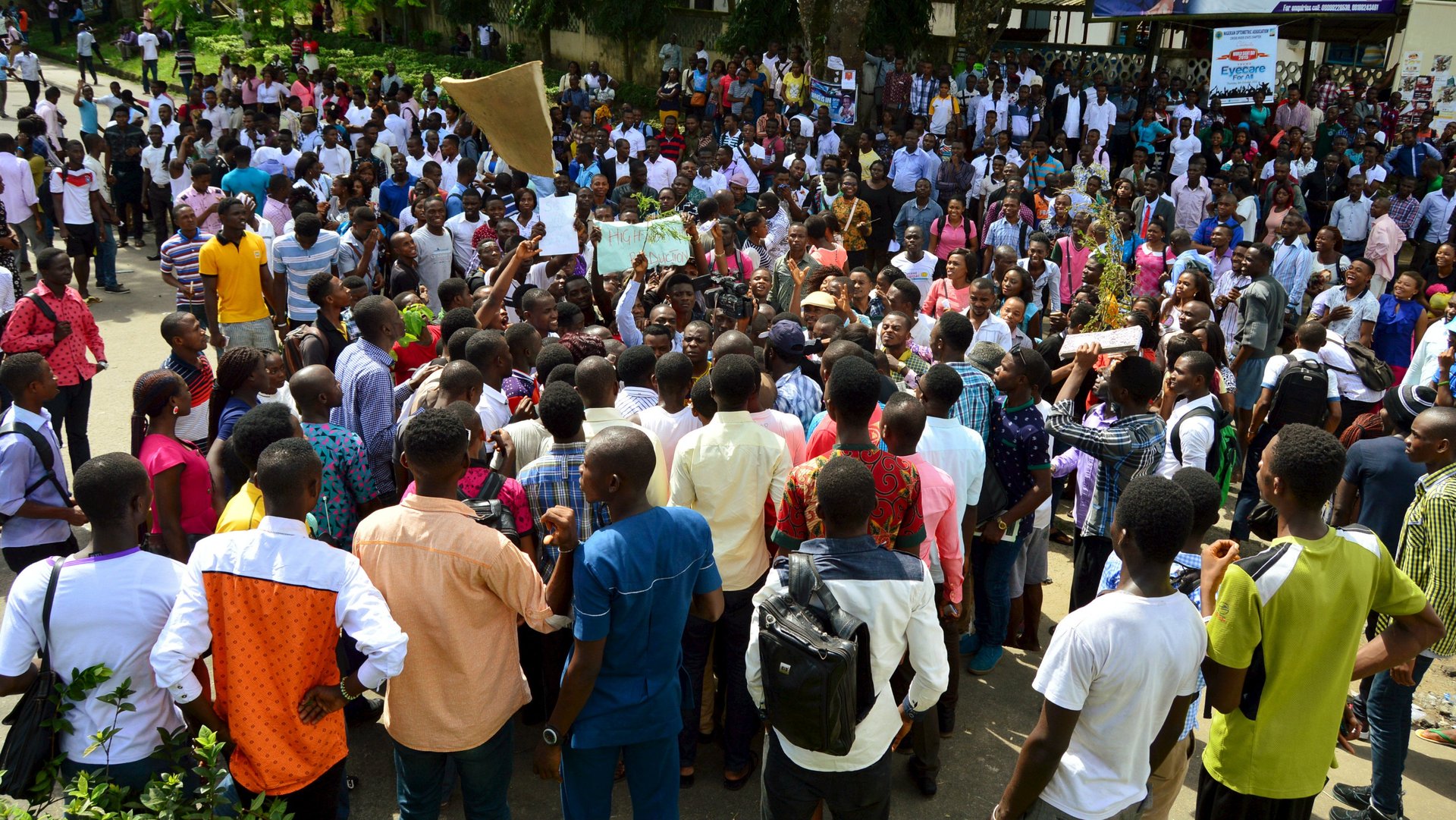Only one in four Nigerians applying to university will get a spot
Every year, millions of Nigerian students get their hearts broken—not by their high school sweethearts, but by a failure to get into university. It will not always be because they did not study hard enough for entrance exams, instead, in many cases, it will be because there simply isn’t enough room for all of them.


Every year, millions of Nigerian students get their hearts broken—not by their high school sweethearts, but by a failure to get into university. It will not always be because they did not study hard enough for entrance exams, instead, in many cases, it will be because there simply isn’t enough room for all of them.
New data from Nigeria’s National Bureau of Statistics (NBS) and the Joint Admissions and Matriculation Board (JAMB) shows that between 2010 and 2015, of the 10 million applicants that sought entry into Nigerian tertiary institutions, only 26% gained admission.
The most obvious reason for this deficit is the capacity of local tertiary institutions compared to growing student populations. In total, there are around 150 private and public universities in Nigeria, with a capacity to carry 600,000 students. For a country with 180 million people, 62% of them 24 or younger, that’s nowhere near enough. In comparison, the US has over 5,000 higher education institutions, and a population of 319 million.
Given the lack of opportunities locally, some Nigerians opt for a foreign university degree, which can provide graduates with an edge in Nigeria’s competitive job market. But in a country where the minimum wage is only $57 per month, many can’t afford to pay for expensive foreign degrees. Online degrees from foreign schools are not an option either. Last September, Nigeria’s National University Commission said online degrees from foreign universities “are unacceptable.”
NBS data also reveals a huge gender gap in education in much of Nigeria. In Nigeria’s northeast, with some of the lowest literacy rates in country and longstanding cultural beliefs which deem education for girls a luxury, female students made up just a small portion of the total student population between 2010 and 2015.
To fix the girl-education deficit, Sanusi Lamido Sanusi, the Emir of Kano, a leading northern monarch, has advocated banning child marriages in the region. And to solve the region’s broader literacy problems, he has also suggested converting mosques to schools.